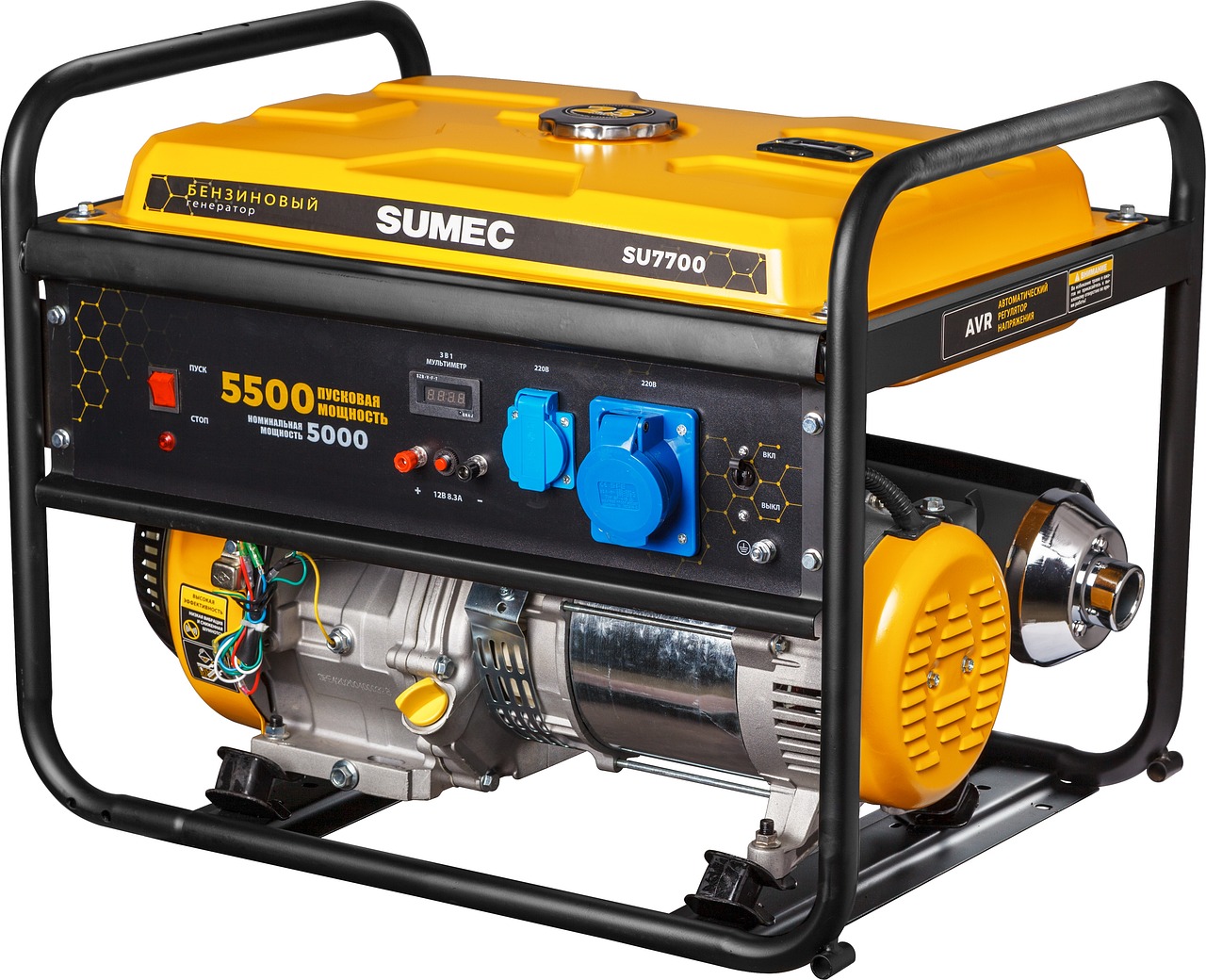Can I use a Portable Generator to Power my Electric Pool Pump?
As a homeowner with a pool, I know how important it is to keep the pool pump running smoothly. But what do you do during a power outage or when you need to perform maintenance on your main power source? That’s where a portable generator comes in handy.
In this article, I’ll explore the benefits and considerations of using a portable generator to power your electric pool pump.
Let’s dive in and find out if it’s the right solution for you.
Key Takeaways
- Ensure the generator has sufficient power for the pool pump’s wattage
- Properly ground the generator and use an outdoor-rated extension cord
- Consider having a battery backup system for the pool pump
- Regular maintenance is crucial for reliable portable generator operation
Power Requirements for Your Electric Pool Pump
The power requirements for my electric pool pump depend on its wattage and should be considered when using a portable generator. It’s important to ensure that the generator can provide enough power to run the pump effectively. This means checking the wattage specifications of the pump and comparing it to the generator’s capabilities.
Cost considerations also come into play, as a generator with higher wattage capacity may be more expensive. Safety precautions are also crucial when using a portable generator. Proper grounding and the use of outdoor-rated extension cords are necessary to prevent electrical hazards. Following the manufacturer’s guidelines for safe operation and maintenance of the generator is essential.
Considerations for Using a Portable Generator
When using a portable generator to power my electric pool pump, there are several considerations to keep in mind.
- Safety precautions for using a portable generator near a pool:
It’s important to follow safety guidelines when operating a generator near a pool. Keep the generator at a safe distance to prevent any potential electrical hazards.
- How to calculate the wattage needed for a pool pump and choose the right generator:
To ensure the generator can handle the power requirements of the pool pump, calculate the wattage needed by consulting the manufacturer’s specifications or a professional. Choose a generator with sufficient power output to avoid overloading the system.
- Proper grounding and outdoor-rated extension cords:
Ground the generator properly to prevent any electrical shocks. Use extension cords that are suitable for outdoor use and can handle the power load of the pool pump.
Strain on the Generator When Running a Pool Pump
How much strain does running a pool pump put on my portable generator?
When you run a pool pump with your portable generator, it can put significant strain on the generator’s engine. The pool pump requires a substantial amount of power to operate, and this can lead to increased fuel consumption and generator maintenance.
Running the pump for extended periods, especially in hot weather, can further intensify the strain on the generator. This means that you may need to refuel the generator more frequently and perform maintenance tasks more often to ensure its optimal performance.
It’s important to consider the fuel depletion or failure of the generator, as this can impact the operation of your pool pump.
Importance of a Battery Backup System for Your Pool Pump
Having a battery backup system for my pool pump is essential. It offers several benefits and ensures that my pool remains clean and functional even when the generator fails or runs out of fuel. Here are the key benefits of installing a battery backup system:
- Continuous Operation: A battery backup system provides uninterrupted power to the pool pump, ensuring continuous water circulation and filtration.
- Protection Against Damage: By preventing sudden power disruptions, the battery backup system safeguards the pool pump from potential damage caused by unexpected shutdowns.
- Peace of Mind: During power outages or generator maintenance, the battery backup system ensures that my pool remains operational, giving me peace of mind.
Installing a battery backup system for my pool pump is a straightforward process. It involves connecting the backup system to the pump’s electrical circuit and ensuring that it’s properly grounded. With a battery backup system in place, I can enjoy a clean and well-maintained pool without worrying about power interruptions.
Maintenance and Noise Considerations for Portable Generators
Maintaining a portable generator is crucial for optimal performance and longevity. To ensure smooth operation, regular maintenance is necessary. Some generator maintenance tips include:
- Checking the oil levels
- Cleaning or replacing air filters
- Inspecting spark plugs
- Tightening loose connections
It’s also important to follow the manufacturer’s guidelines for maintenance and noise control.
When it comes to noise reduction measures, there are a few options available. Using a generator enclosure or a soundproof box can help reduce noise levels significantly. Additionally, placing the generator on a soft surface or using rubber isolation mounts can minimize vibrations and further reduce noise.
Conclusion
In conclusion, using a portable generator to power your electric pool pump can be a convenient solution during power outages or maintenance issues.
However, it’s important to consider the necessary wattage, proper grounding, safety guidelines, and venting requirements.
Additionally, a battery backup system is crucial for uninterrupted pool pump operation.
Regular maintenance and noise considerations should also be taken into account when using portable generators.
Overall, with proper precautions, a portable generator can effectively power your electric pool pump.


